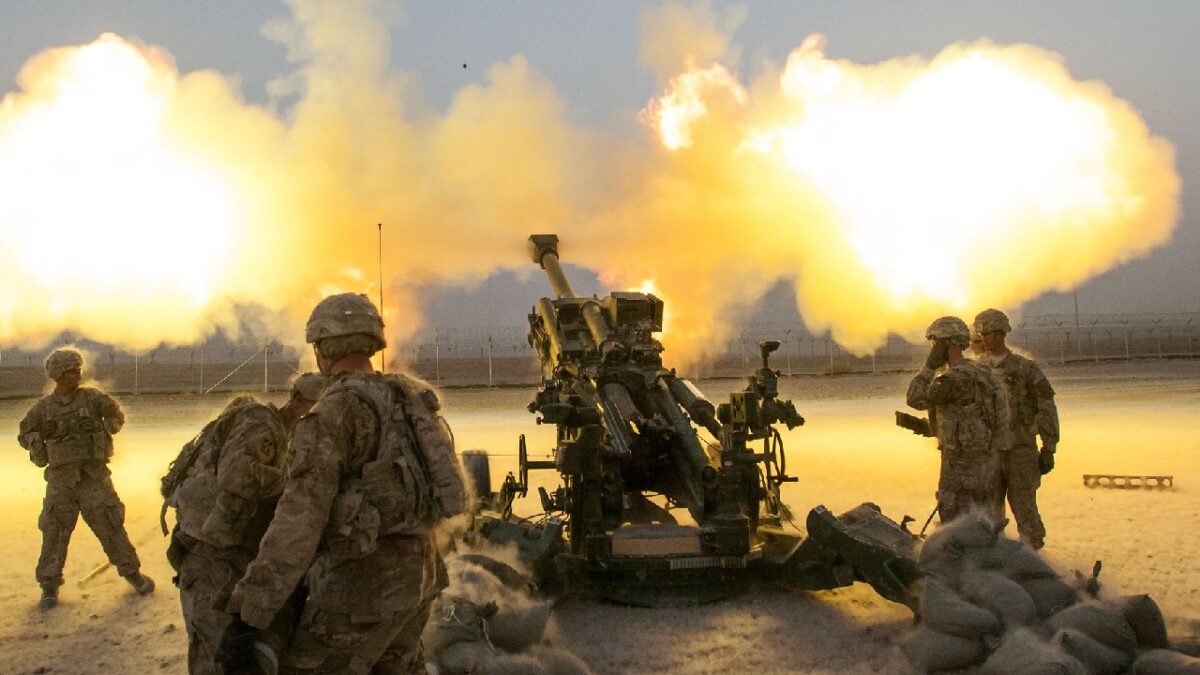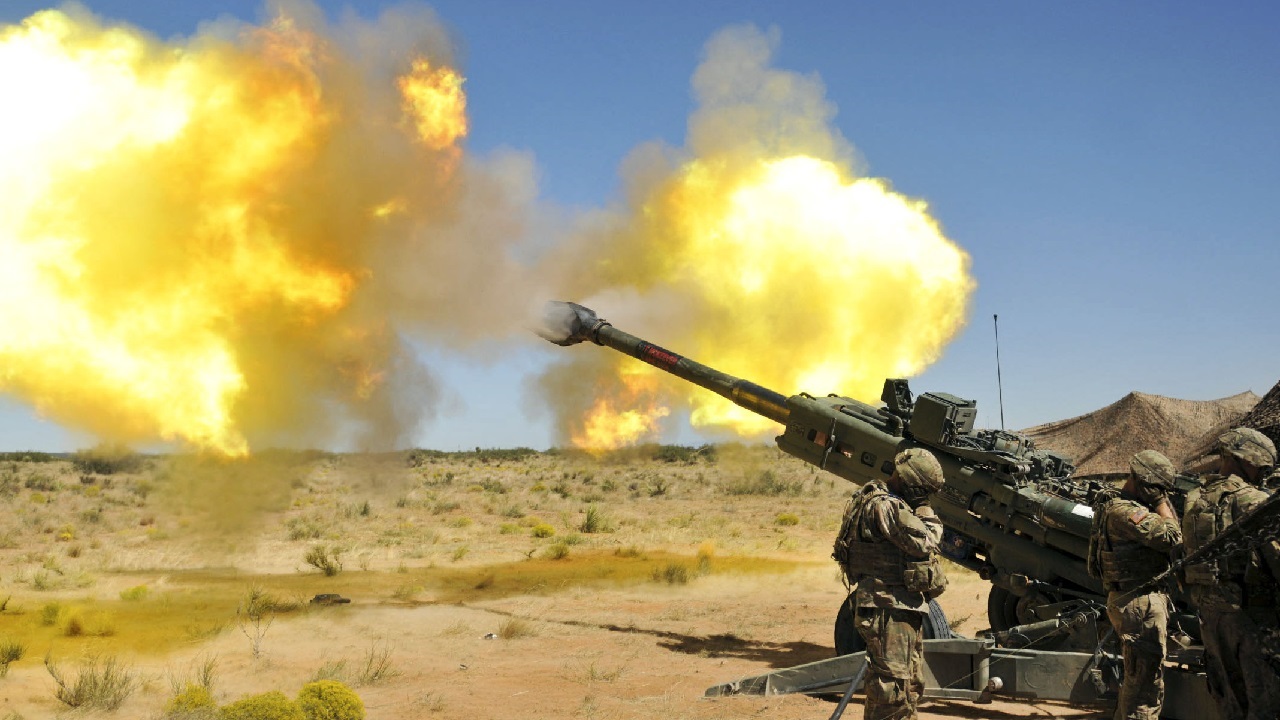Six months into the invasion of Ukraine, President Vladimir Putin’s terror campaign against Ukrainian civilians continues unabated. Putin, who has been obsessed with Ukraine for over a decade, believes he can outlast Western sanctions as the war of attrition between his forces and the Ukrainians moves forward.
If he is right, that will be due to Western strategic failures. There are four reasons the West’s strategy is failing.
Unwilling Allies
The first reason is that the West is keen to fight Russia to the last Ukrainian. Putin, meanwhile, is ready to fight Ukraine and the West to the last Russian. Ukraine is being destroyed, and its population subjected to genocide, because NATO refused to offer the country membership and because Western governments refused to appreciate the tyrant Putin was.
In 2006 Russian defector Oleksandr Litvinenko was murdered with plutonium in London, yet it took a decade for the British government to authorize an inquiry. In 2007, Russia launched a cyberattack against NATO-member Estonia; one year later, Putin’s forces invaded Georgia. Yet in 2011, Germany began building Nord Stream 2. Now, we can all watch Russia use that very pipeline to blackmail Europe. In 2014 Russia invaded Ukraine and annexed Crimea; Russia interfered in U.S. and French elections in 2016 and 2017; and a chemical assassination attempt was made on Russian defector in 2018.
Many books will be written about why it took a full-scale invasion of Ukraine in 2022 for the West to finally recognize the war criminal that Putin is. Yet even right now, the U.S. State Department continues to push back against proposals to designate Russia alongside Iran, Cuba, North Korea, and Syria as countries that are state sponsors of terrorism. Russia should receive that designation, and criminal cases should be opened at the International Criminal Court to investigate Putin and other Kremlin leaders for genocide and war crimes.
Lack of Coherent Goals
The second Western failure is its lack of a united end goal for the war in Ukraine. Does the West aim to weaken Putin to such an extent that he will be forced to negotiate? Or is it Western policy to push for Putin’s defeat in Ukraine, with the hope this would lead to his removal from power? Goals determine the weapons and military equipment that countries send to Ukraine, and the speed with which these reach the battlefield. If the goal is to defeat Putin, then Ukraine needs more heavy-duty artillery such as HIMARS, and the West needs to end its embargo on sending fighter jets.
Negotiations with Putin cannot succeed, because lying, cheating, and falsifying are built into Russia’s hybrid warfare model. The EU negotiated an end to the Russian invasion of Georgia in 2008, but this did nothing to dissuade Russia from annexing South Ossetia, Abkhazia and Crimea.
Putin will never agree to negotiate if defeat is a risk. Putin will not end the war if Ukraine forces its occupiers from the country’s south; Russians will continue firing missiles at civilian targets in Ukraine.
Western leaders should understand that military aggression against Ukraine will continue for as long as Putin is Russia’s president. This is why the West’s goal should be Putin’s defeat and removal from power.
Defending Ukraine From Missiles
The third failure is the refusal to provide or sell air defense systems. Without these, the cost of rebuilding Ukraine will continue to grow. Only six months into the war, the bill for rebuilding Ukraine is approaching $1 trillion. Another year of Putin’s barbaric missile onslaught will double this figure.
Supplying U.S. Patriot and Israeli Iron Dome surface-to-air systems would blunt Putin’s ability to terrorize Ukraine. It would speed the end of the war and reduce the final cost of rebuilding Ukraine. The U.S. should pressure Israel to end its embargo on supplying military equipment to Ukraine.
Make Russians Feel It
Finally, the war needs to be rebalanced. It cannot continue to be the case that only one side feels its effects. Ukrainian cities, towns, villages, and infrastructure are being deliberately and systematically destroyed, and Ukrainians civilians are being slaughtered and shipped to Russia.
Russia is feeling no effects from the war, other than the impact of sanctions. While Ukraine should not target Russian civilians, the West should appreciate that Ukraine has a right under international law to strike Russian military targets, including transportation hubs and fuel depots.
British Defense Secretary Ben Wallace said Ukrainian forces are within their rights to hit targets inside Russia. “If Ukraine did choose to target logistics infrastructure for the Russian army, that would be legitimate under international law,” Wallace told BBC TV. On Saturday, Ukraine attacked the headquarters of the Black Sea Fleet HQ in Crimea.
The war in Ukraine needs to be brought home to the Russian population in every way possible. Ukraine has published and circulated interviews with Russian POWs. Western radio stations like Radio Liberty’s Radio Svoboda, the BBC Russian Service, Voice of America, and others should publicize discontent in the Russian army, as well as the activities of anti-war protesters inside Russia. Exiled Russian journalists in Ukraine are strategic assets in spreading these stories and disseminating leaked data hacked by Ukraine’s IT Army and the Anonymous Collective.

Soldiers serving with Alpha Battery, 2nd Battalion, 77th Field Artillery Regiment, 4th Infantry Brigade Combat Team, 4th Inf. Division, shoot a round down range from their M777A2 howitzer on Kandahar Airfield, Afghanistan, Aug. 22, 2014. The round was part of a shoot to register, or zero, the howitzers, which had just arrived on KAF from Forward Operating Base Pasab. The shoot also provided training for a fire support team from 1st Battalion, 12th Infantry Regiment, 4th IBCT, 4th Inf. Div. This is similar to artillery now engaged in Ukraine. (U.S. Army photo by Spc. Ariel Solomon/Released)
These activities, and strikes against Russian military logistics, should be understood as parts of a single strategy of bringing the war home to Russians. The Russian population needs to know the criminal nature of Putin’s war against Ukraine and its civilian population.
If the West does not develop a coherent strategy – if it is unwilling to provide protection to Ukrainian civilians and continues to hold back Ukraine from seeking outright military victory – Putin may well win the war of attrition. A Russian victory would lead to genocide in Ukraine, and to the end of the international liberal system as we have known it since World War II.
Taras Kuzio is a professor of political science at the National University of Kyiv Mohyla Academy and author of the recently published Russian Nationalism and the Russian-Ukrainian War .

